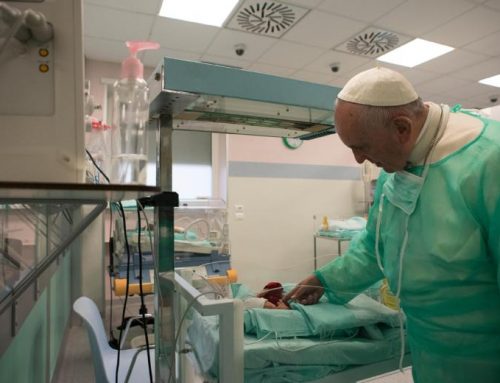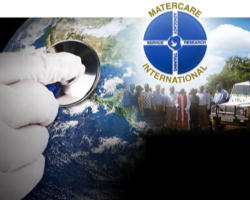Pubblichiamo di seguito il Messaggio che il Santo Padre Francesco ha inviato ai partecipanti al Congresso Internazionale WOOMB su La “rivoluzione Billings” 70 anni dopo: dalla conoscenza della fertilità alla medicina personalizzata, che si svolge a Roma, presso l’Università Cattolica del Sacro Cuore, dal 28 al 29 aprile 2023:
Messaggio del Santo Padre
Cari fratelli e sorelle!
Mi è gradito far giungere il mio saluto agli organizzatori e a tutti i partecipanti al Congresso Internazionale WOOMB su La “Rivoluzione Billings” 70 anni dopo: dalla conoscenza della fertilità alla medicina personalizzata. Esprimo vivo apprezzamento per questa iniziativa, che richiama l’attenzione sulla bellezza e il valore della sessualità umana.
Mentre nella seconda metà del secolo scorso si sviluppava la ricerca farmacologica per il controllo della fertilità e si diffondeva la cultura contraccettiva, i coniugi John ed Evelyn Billings sviluppavano accurate ricerche scientifiche e diffondevano una metodica semplice, a disposizione delle donne e delle coppie, per la conoscenza naturale della fertilità stessa, offrendo un prezioso strumento per la gestione responsabile delle scelte procreative. In quegli anni la loro proposta appariva poco moderna e meno affidabile rispetto alla pretesa immediatezza e sicurezza degli strumenti farmacologici. In realtà, essa offriva e offre provocazioni e spunti di riflessione attuali e fondamentali, da riprendere e approfondire: ad esempio l’educazione al valore della corporeità, una visione integrata e integrale della sessualità umana, la cura della fecondità dell’amore anche quando non è fertile, la cultura dell’accoglienza della vita e il problema del crollo demografico. Sotto questi profili, quella che è stata definita la “rivoluzione Billings” non ha esaurito la sua spinta originaria, ma continua a essere una risorsa per la comprensione della sessualità umana e per la piena valorizzazione della dimensione relazionale e generativa della coppia.
Una seria educazione in questo senso appare oggi necessaria, in un mondo dominato da una visione relativistica e banale della sessualità umana. Essa chiede invece di essere considerata entro uno sguardo antropologico ed etico, in cui le questioni dottrinali siano approfondite senza semplificazioni indebite né rigide chiusure. In particolare, è bene tenere sempre presente la connessione inscindibile tra il significato unitivo e quello procreativo dell’atto coniugale (cfr S. Paolo VI, Enc. Humanae vitae, 12). Il primo esprime il desiderio degli sposi di essere una cosa sola, una sola vita; l’altro esprime la comune volontà di generare vita, che permane anche nei periodi di infertilità e nell’anzianità. Quando questi due significati sono consapevolmente affermati, nasce e si rafforza nel cuore degli sposi la generosità dell’amore, che li dispone ad accogliere una nuova vita. Quando ciò manca, l’esperienza della sessualità si impoverisce, si riduce alle sensazioni, che presto diventano autoreferenziali, e perde la sua dimensione umana e di responsabilità. La tragedia della violenza tra i partner sessuali – penso alla piaga del femminicidio – trova qui una delle sue cause principali.
Di fatto si sta perdendo di vista il nesso tra la sessualità e la vocazione fondamentale di ogni persona al dono di sé, che trova una peculiare realizzazione nell’amore coniugale e familiare. Questa verità, pur inscritta nel cuore dell’essere umano, per esprimersi in modo pieno richiede un percorso educativo. Si tratta di un’urgenza che interpella la Chiesa e tutti coloro che hanno a cuore il bene della persona e della società e che attende risposte concrete, creative e coraggiose, come si evidenzia in Amoris laetitia, a proposito dell’educazione sessuale: «Il linguaggio del corpo richiede il paziente apprendistato che permette di interpretare ed educare i propri desideri per donarsi veramente. Quando si pretende di donare tutto in un colpo è possibile che non si doni nulla. Una cosa è comprendere le fragilità dell’età o le sue confusioni, altro è incoraggiare gli adolescenti a prolungare l’immaturità del loro modo di amare. Ma chi parla oggi di queste cose? Chi è capace di prendere sul serio i giovani? Chi li aiuta a prepararsi seriamente per un amore grande e generoso?» (n. 284). Dopo la cosiddetta rivoluzione sessuale che ha abbattuto dei tabù, c’è bisogno di una nuova rivoluzione nella mentalità: scoprire la bellezza della sessualità umana sfogliando il grande libro della natura; imparare a rispettare il valore del corpo e della generazione della vita, in vista di autentiche esperienze di amore familiare.
Un’altra dimensione della sessualità, non meno ricca di sfide per il nostro tempo, è proprio il suo rapporto con la generazione della vita. In effetti, la conoscenza della fertilità, se ha un valore educativo generale, ha ancora più rilevanza nel momento in cui la coppia decide di aprirsi all’accoglienza dei figli. Il Metodo Billings, assieme ad altri simili, rappresenta una delle forme più appropriate per realizzare in modo responsabile il desiderio di essere genitori. Oggi la separazione ideologica e pratica della relazione sessuale dalla sua potenzialità generativa ha determinato la ricerca di forme alternative per avere un figlio, che non passano più per i rapporti coniugali, ma si avvalgono di processi artificiali. Però, se è bene aiutare e sostenere un legittimo desiderio di generare con le più avanzate conoscenze scientifiche e con tecnologie che curano e potenziano la fertilità, non lo è creare embrioni in provetta e poi sopprimerli, commerciare con i gameti e ricorrere alla pratica dell’utero in affitto. Alla radice della crisi demografica in atto c’è, assieme a diversi fattori sociali e culturali, uno squilibrio nella visione della sessualità, e non è un caso che il Metodo Billings sia una risorsa anche per affrontare in modo naturale i problemi di infertilità e per aiutare gli sposi a diventare genitori individuando i periodi più fertili. In questo campo, una maggiore conoscenza dei processi della generazione della vita, che si avvalga di moderne acquisizioni scientifiche, potrebbe aiutare molte coppie a fare scelte più consapevoli ed eticamente più rispettose della persona e del suo valore.
È questo un compito che devono assumersi con rinnovato impegno le Università cattoliche e, in particolare, le Facoltà di medicina e chirurgia. Per questo, come è stato fondamentale per i coniugi Billings operare nella Scuola di medicina dell’Università di Melbourne, così è importante che il Centro studi e ricerche per la regolazione naturale della fertilità, operante dal 1976 presso l’Università Cattolica del Sacro Cuore, faccia parte di uno dei più prestigiosi centri accademici italiani e possa beneficiare delle più avanzate conoscenze scientifiche per svolgere la sua missione di ricerca e di formazione.
Del resto la prospettiva scientifica di questo congresso internazionale mostra come sia fondamentale prestare attenzione alla peculiarità di ogni coppia e di ogni persona, specialmente nei confronti della donna. L’orizzonte della medicina personalizzata ci ricorda appunto che ogni persona è unica e irripetibile e che, prima di essere oggetto di cura per disfunzioni e malattie, dev’essere aiutata ad esprimere nel modo migliore le sue potenzialità, in vista di quel benessere che è soprattutto frutto di un’armonia di vita.
Favorire la conoscenza della fertilità e dei metodi naturali ha infine anche un grande valore pastorale, in quanto aiuta le coppie ad essere più consapevoli della loro vocazione coniugale e a dare testimonianza dei valori evangelici della sessualità umana. Di una tale rilevanza è prova anche la numerosa partecipazione a questo congresso, che vede riunite a Roma (o video collegate) persone provenienti da molti Paesi e da tutti i continenti. Il riscontro positivo che emerge dalle loro esperienze, maturate talvolta in contesti sociali e culturali molto difficili, conferma l’importanza di lavorare con assiduità e slancio in questo campo, anche per promuovere la dignità della donna e una cultura improntata all’accoglienza della vita, valori peraltro condivisi anche con altre religioni.
Si tratta, quindi, di un aspetto non secondario della pastorale familiare, come hanno insegnato i miei predecessori e come anch’io ho ricordato in Amoris laetitia: «In questo senso l’Enciclica Humanae vitae (cfr 10-14) e l’Esortazione apostolica Familiaris consortio (cfr 14; 28-35) devono essere riscoperte» (n. 222). Il ricorso ai metodi fondati sui ritmi naturali di fecondità va incoraggiato, mettendo in luce che essi «rispettano il corpo degli sposi, incoraggiano la tenerezza fra di loro e favoriscono l’educazione di una libertà autentica» (Catechismo della Chiesa Cattolica, 2370).
Carissimi, vi auguro un fruttuoso lavoro e vi ringrazio per ciò che fate. Portate avanti con passione e generosità questo prezioso servizio alla comunità ecclesiale e a tutti coloro che vogliono coltivare i valori umani della sessualità. Dobbiamo essere sempre consapevoli che in questo ambito della vita si riflette con particolare splendore la benedizione originaria di Dio (cfr Gen 1,26-30) e che anche in questo campo siamo chiamati ad onorarlo, come esorta San Paolo: «Glorificate dunque Dio nel vostro corpo!» (1Cor 6,20). Vi benedico di cuore e vi chiedo per favore di pregare per me.
Roma, San Giovanni in Laterano, 24 aprile 2023
FRANCESCO
[00697-IT.01] [Testo originale: Italiano]
Traduzione in lingua inglese
Dear brothers and sisters!
I offer a warm greeting to the organizers and participants of the WOOMB International Congress entitled The “Billings Revolution” 70 years Later: From Fertility Knowledge to Personalized Medicine. I very much appreciate this initiative, which once again reminds us of the beauty and dignity of human sexuality.
In the second half of the last century, as pharmacological research for fertility control expanded and the contraceptive culture was on the rise, John and Evelyn Billings conducted careful scientific research and developed a simple method, accessible to women and couples, for natural knowledge of fertility, offering them a valuable tool for the responsible management of procreative choices. In those years, their approach might have appeared outdated and less reliable in comparison with the purported immediacy and security of pharmacological interventions. Yet in fact, their method has continued to prove timely and challenging, since it has led to serious reflection on a number of essential areas. These include the need for education in the value of the human body, an integrated and integral vision of human sexuality, an ability to cherish the fruitfulness of love even when not fertile, the building up of a culture that welcomes life and ways to confront the problem of demographic collapse. In this respect, the original momentum of what has been called the “Billings revolution” has not diminished, but continues to contribute to the understanding of human sexuality and a fuller appreciation of the relational and procreative dimensions of the couple.
In a world dominated by a relativistic and trivialized view of human sexuality, serious education in this area appears increasingly necessary, requiring an anthropological and ethical approach in which doctrinal issues are explored without undue simplifications or inflexible conclusions. In particular, there is a need always to keep in mind the inseparable connection between the unitive and procreative meanings of the conjugal act (cf. PAUL VI, Humanae Vitae, 12). The former expresses the desire of the spouses to be one, a single life; the latter expresses the shared desire to generate life, which endures even at times of infertility and in old age. When these two meanings are consciously affirmed, the generosity of love is born and strengthened in the hearts of the spouses, disposing them to welcome new life. Lacking this, the experience of sexuality is impoverished, reduced to sensations that soon become self-referential, and its dimensions of humanity and responsibility are lost. The tragedy of violence between sexual partners – including the murder of women – here finds one of its main causes.
Indeed, we are tending to lose sight of the connection between sexuality and the fundamental vocation of each person, the gift of self, which finds particular fulfilment in conjugal and family love. This truth, while present in the heart of each human being, requires education in order to achieve full expression. This is urgently needed, and it represents a challenge for the Church and all those who have the good of the person and society at heart. As I pointed out in Amoris Laetitia, it demands concrete, creative and courageous responses in the area of sexual education: “The language of the body calls for a patient apprenticeship in learning to interpret and channel desires in view of authentic self-giving. When we presume to give everything all at once, it may well be that we give nothing. It is one thing to understand how fragile and bewildered young people can be, but another thing entirely to encourage them to prolong their immaturity in the way they show love. But who speaks of these things today? Who is capable of taking young people seriously? Who helps them to prepare seriously for a great and generous love?” (No. 284). In the aftermath of the so-called sexual revolution and the breakdown of taboos, we need a new revolution in our way of thinking. We need to discover the beauty of human sexuality by once again turning to the great book of nature, learning to respect the value of the body and the generation of life, with a view to authentic experiences of conjugal love.
Another dimension of sexuality, no less challenging in our time, is precisely its relationship with procreation. Knowledge of fertility, while having a general importance for education, becomes all the more important when a couple chooses to be open to accepting children. The Billings Method, together with others like it, represents one of the most suitable means for realizing responsibly the desire to be parents. Today the ideological and practical separation of the sexual relationship from its generative potential has resulted in the quest for alternative forms of having a child, no longer through marital relations but through the use of artificial processes. However, while it is appropriate to assist and support a legitimate desire to conceive with the most advanced scientific knowledge and technologies that can enhance fertility, it is wrong to create test tube embryos and then suppress them, to trade in gametes and to resort to the practice of surrogate parenthood. At the root of the current demographic crisis is, along with various social and cultural factors, an imbalance in the view of sexuality. Hence, the Billings Method also serves as a resource for dealing naturally with infertility problems and for helping spouses become parents by identifying the most fertile periods. In this field, a greater understanding of the processes of procreation, using modern scientific findings, could help many couples make informed and ethically sound decisions that are more respectful of the person and his or her dignity.
This is a task for Catholic universities, and Faculties of Medicine in particular, to take up with renewed commitment. It was essential that John and Evelyn Billings were able to work in the School of Medicine of the University of Melbourne. It is likewise important that the Study and Research Centre for the Natural Regulation of Fertility, present since 1976 in the Catholic University of the Sacred Heart, be part of one of the most prestigious Italian academic institutions and thus benefit from the most advanced scientific knowledge as it carries out its mission of research and training.
The scientific approach of this International Congress is coupled with a recognition of the importance of paying attention to the uniqueness of each couple and each person, and women in particular. A “personalized medicine” reminds us precisely that each person is unique and unrepeatable and that, prior to being the object of treatment for dysfunctions and diseases, he or she must be helped to express his or her potential in the best way possible, with a view to that well-being which is above all the fruit of a harmonious life.
Finally, promoting knowledge of fertility and natural methods also has great pastoral value, since it helps couples to be more conscious of their marital vocation and to bear witness to the Gospel values of human sexuality. The importance of this is seen in the large number of participants at this Congress, with people from many countries and every continent gathered in Rome or joining by video. The positive feedback that has emerged from your various experiences, often the fruit of your work in very difficult social and cultural settings, confirms the importance of your efforts to work with perseverance and commitment in this field, not least to promote the dignity of women and a culture marked by the acceptance of life. These, in fact, are values that we share with other religions.
Your work also contributed to a primary aspect of the Church’s ministry to families, as my Predecessors have taught and I too noted in Amoris Laetitia: “In this sense, the teaching of the Encyclical Humanae Vitae (cf. 10-14) and the Apostolic Exhortation Familiaris Consortio (cf. 14; 28-35) ought to be taken up anew” (No. 222). The use of methods based on the natural rhythms of fertility should be encouraged, emphasizing the fact that they “respect the bodies of the spouses, encourage tenderness between them, and favour the education of an authentic freedom” (Catechism of the Catholic Church, 2370).
Dear friends, I offer you my best wishes for the fruitfulness of your work and I thank you for all that you do. Carry on with passion and generosity in your valuable service to the ecclesial community and to all those who seek to cultivate the human values of sexuality. May we always keep in mind that God’s original blessing is reflected with particular splendour in this area of life (cf. Gen 1:26-30), and that we are called to honour him in this area as well, as Saint Paul exhorts us: “Therefore glorify God in your body” (1 Cor 6:20). I bless all of you from my heart and I ask you, please, to remember me in your prayers.
Rome, Saint John Lateran, 24 April 2023
FRANCIS
[00697-EN.01] [Original text: Italian]









